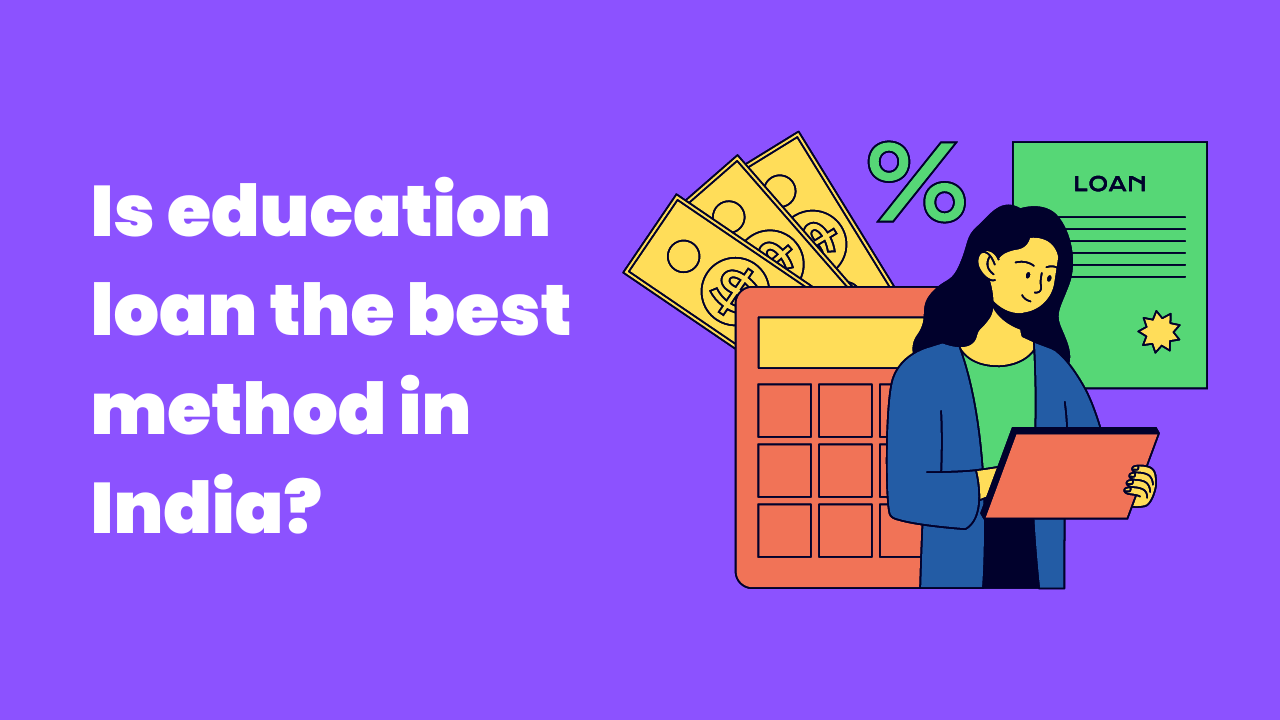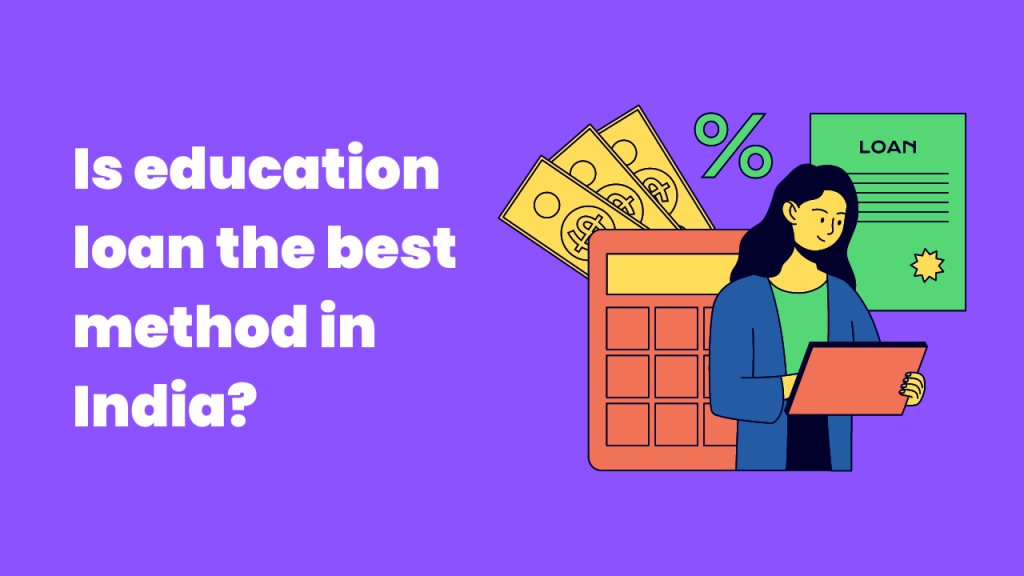Applying for an education loan makes sense, doesn’t it?
It’s a fair trade after all – you borrow a loan to learn something for whatever years and start paying it back gradually.
Let’s be honest – Indian education is expensive. The ‘Student of the Year-like’ colleges that we see in Bollywood are expensive too. In the end, it doesn’t really matter because so many students apply for education loans, right?
If you are a student and are planning to do so too, it’s a great idea. Go with it all the way!
But before we give you any more validation over this, we want you to take 5 minutes of your time, read this blog post, and eventually decide for yourself whether or not you want to apply for a student loan in India.
The pros and cons of education loans
Before we dive into whether you should opt for a student loan or not, you need to understand what can an education loan do for you in the first place.
Talking about the pros…
Afford college, of course – Even though colleges are expensive, they are important. If your current financial situation isn’t flexible enough to help you enter college, an education loan can help you all the way.
Family responsibilities fulfilled – When your parents are burdened with your financial responsibility (college in particular) for a while, it opens doors for a relieved life.
Your financial independence – Education loans provide you with the freedom to study and pursue your dreams, as well as to pursue higher education without financial constraints. A great repayment discipline could help you build a very ideal financial situation for yourself.
Talking about the cons…
A burden after all – Let’s be honest, repayments are brutal and daunting. A break in repayments not only hurts your credit score but also ends up making it difficult for you to borrow any more loans in the future.
Overdue – Failure to the repayment of a single EMI on time directly translates into pressure to find money so that you can pay the next few EMIs on time. Ergo, missing even one EMI payment can cause you to be perpetually late.
Not flexible. At all – When studying on a student education loan, your options for changing universities or courses are limited. If you drop out of college or university, lenders will charge you service fees and other fees to cancel the loan.
Things to consider before applying for an education loan
Understand the terms and conditions of the loan: This includes things like the interest rate, repayment period, and any fees or penalties that may apply. It’s important to read through the fine print and ask questions if you’re unsure about something. Having a parent, guardian, or even a family lawyer is great. They will answer questions you didn’t even consider asking.
Compare interest rates and fees: Not all lenders are created equal, so it’s a good idea to compare the interest rates and fees of different lenders to ensure you’re getting the best deal possible. Lenders have different interest rates and you need to settle with the most favorable one. Keep on searching for the best one!
Consider the total cost of the loan: This includes not just the amount you borrow, but also the interest you’ll pay over the life of the loan. It’s important to make sure you can afford to repay the loan after you finish your education.
Be aware of the potential consequences of defaulting: Defaulting on a loan can have serious consequences, such as damage to your credit score and even legal action. Sometimes, there’s also collateral involved, which could be a major problem in certain cases. So, it’s crucial to make sure you’re able to repay the loan before you borrow it.
Review the eligibility criteria: Different lenders have different requirements, so make sure you meet the criteria before applying. This could include things like your credit score, income, or the school you’re planning to attend.
Keep records and communicate with the lender: Once you’ve submitted your loan application, make sure to keep records of all loan-related documents and communicate regularly with the lender. This will help ensure that the loan process goes smoothly and that you’re aware of any important deadlines or changes.
The bottom line
It’s important to remember that taking out an education loan is a serious commitment, and it’s not something to be taken lightly. By considering these six things before you borrow, you’ll be better equipped to make an informed decision that will help you pay for your education without negatively impacting your future finances.
Don’t be afraid to ask questions, do your research, and make sure you fully understand the terms and conditions of the loan before you sign on the dotted line. Also, it’s important to note that, in India, the government has various schemes for education loans such as Central Sector Interest Subsidy Scheme (CSIS), Interest Subsidy Scheme for Education Loan (ISSEL), etc.
It’s always a good idea to explore these schemes as well and see if you are eligible for any of them before applying for a loan with a private lender.
In conclusion, taking out an education loan can be a great way to pay for your education, but it’s important to be fully informed before making that decision. By considering the terms and conditions of the loan, comparing interest rates and fees, considering the total cost of the loan, being aware of the potential consequences of defaulting, meeting the eligibility criteria and keeping records, and communicating with the lender, you’ll be better equipped to make an informed decision that will help you pay for your education without negatively impacting your future finances.











